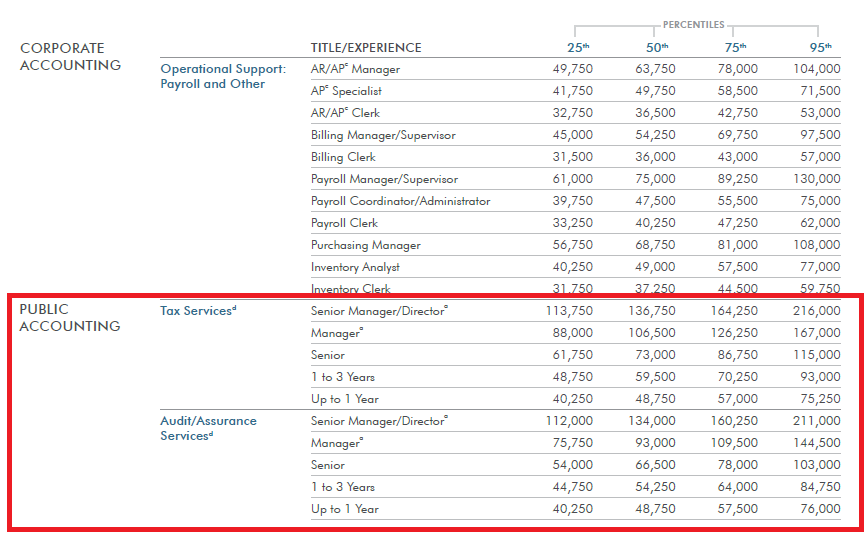
McKinsey and Company may be a good choice if you are looking for a great salary that is competitive with other companies within the same industry. Learn more about average salary, bonus, and office locations. The company culture and the rewards they offer their employees will be revealed.
Average salary
McKinsey and Company's average annual salary is $402,000, although it can vary greatly. The highest-paid employees receive around $240,000 per a year, while those with the lowest salaries earn about $18,000. Salaries for partners range from $199,000 up to more than $1,000,000 In addition, partner compensation varies based on performance and project commissions.
Associates can earn up to $154,000 per annum. As Project Leaders, associates can earn as much as $220,000 per year. Associate salaries can be boosted by performance bonuses and profit-sharing opportunities. Associates typically attain Associate status within three to five years.
Salary advancement
It is very interesting to see the McKinsey company's salary progression. Employees can rise up from the lowest tier to become junior associates. As their career advances, they can be promoted to senior associates and earn a base income of $5 million. As they climb up the ladder, they'll receive bonuses that typically equal 90% of what they earn as a performance bonus.

McKinsey consultants are paid according to their roles. As your company grows, and you accept more challenging work, the salary you earn will likely increase. An entry-level consultant could expect to earn between $108,000 and $116,000 per annum, which is a good salary. Higher salaries can be achieved by those who have a doctorate or an MBA.
Bonuses
McKinsey has a lot to offer in terms of company bonuses. The signing bonus it offers MBAs is nearly doubled since the previous year, to $30,000. Bain, for instance, contributes $7,500 annually to its 401k plan. BCG also places a portion its profits in the new undergrads' 401k. BCG, however, doesn't reveal its bonus. However, the firm recently increased its MBA signing bonus from $25k to $30k in order to keep pace with tech companies.
McKinsey has a bonus that is more generous than the bonuses of other consulting companies. McKinsey & Company associates earn $50k more than a Goldman Sachs consultant. The gap between consulting companies and banks has widened more than $100k a yearly. McKinsey & Company is offering a $10,000 relocation bonus to graduate workers who make the move to McKinsey & Company.
Offices
McKinsey's offices and other company offices can be found in South Boston's Innovation District. These offices are home to 200+ consultants and are known as having a progressive atmosphere. Boston boasts a vibrant culture and a progressive environment. But housing costs are significantly higher than the national median. Consider the many options available if you are thinking of moving to Boston.
McKinsey and Company are a global consultancy firm with offices across the globe. Each city's office culture is unique. Each office offers different office culture and industry specialization, so it's important to find one that fits your preferences.

Levels
There is a clearly defined hierarchy at McKinsey with levels ranging between Associate Consultant and Partner. The traditional career path within McKinsey is to begin as an Analyst and work your way up to becoming a Partner. As you progress from entry to senior roles, your focus will be on data gathering, analysis, and delivering presentations. Associate Consultant positions require a graduate degree. However the firm offers roles for individuals without degrees.
Bain and McKinsey have a similar size but McKinsey has more formal work cultures. This company is very serious about its work and has a tendency to work longer hours. The company does not give logo gifts to employees as this could seem unprofessional to clients. Although the compensation at both companies is similar, McKinsey's alumni network is larger and McKinsey's reputation is higher.
FAQ
What skills do I need for consulting?
A consultant should have strong analytical skills as well as interpersonal skills. This is essential because you will be working on projects that you don't know the details of. You will need to learn how you manage people and solve problems quickly.
You also need to have excellent communication skills. Most clients expect an answer within 24hrs. If they don't hear back from you, they assume you aren't interested. It is crucial that you keep them up to date and make sure they know what's happening.
What is the average time it takes to become a consultant
It depends on the industry and your background. Most people start out with a few months before they find work.
Some consultants work for years to perfect their skills, before being hired.
What industries use consultants
There are many types and styles of consultants. Many consultants specialize in a particular type of business. Others may be more focused on multiple types.
While some consultants only work for private companies, others represent large corporations.
Some consultants also work internationally and can help companies around the globe.
Can anyone be a Consultant?
A consultant is someone who assists you in achieving your goals by offering advice and suggestions on how to achieve it faster, cheaper, and so forth.
Consultants can help you resolve problems, make decisions, and negotiate with other people.
Consultants are often hired to help with specific tasks and projects.
Actually, most consultants get paid hourly and daily rates, rather than per-project.
How much do consultants make?
Some consultants earn more than $100k per year, but most consultants earn between $25 and $50k. An average consultant salary is $39,000 This applies to both hourly and salaried consultants.
Salary depends on experience, location, industry, type of contract (contractor vs. employee), and whether the consultant has his/her own office or works remotely.
Is it possible for a consulting business to be run from home?
Absolutely! In fact, many consultants already do exactly this.
Most freelancers work remotely using tools like Skype, Slack, Trello, Basecamp, and Dropbox. They may even create their own office space in order to take advantage of company perks.
Some freelancers prefer to work at libraries and cafes instead of traditional offices.
Others choose to work at home because they love being with their children.
Of course, working from home has its pros and cons. It's worth looking into if your job is fulfilling.
How do you start an LLC consultancy company?
The first step is to decide what service provider you want to be. The next step is to ensure that you're qualified for the services you offer. It is also possible to locate someone who has done the same job as you and find out how they do it.
Once you have an idea of the content you want, you can then determine where your target audience is. If you don't have enough, you might need to create them.
Next, you will need to decide if you want to start your own business or hire others.
You could also consider starting your own consulting company by getting a license from the state, but this requires quite a bit of paperwork and legal fees.
Statistics
- WHY choose me: Why your ideal client should choose you (ex: 10 years of experience and 6-week program has helped over 20 clients boost their sales by an average of 33% in 6 months). (consultingsuccess.com)
- According to IBISWorld, revenues in the consulting industry will exceed $261 billion in 2020. (nerdwallet.com)
- Over 62% of consultants were dissatisfied with their former jobs before starting their consulting business. (consultingsuccess.com)
- 67% of consultants start their consulting businesses after quitting their jobs, while 33% start while they're still at their jobs. (consultingsuccess.com)
- On average, your program increases the sales team's performance by 33%. (consultingsuccess.com)
External Links
How To
How can you find the best consultants?
First, ask yourself what kind of consultant you are looking for. Before you start looking for someone to work with, it's important that you know your expectations. It is important to make a list with all the requirements you have for a consultant. These could include professional expertise, technical skills and project management abilities, communication skills, availability, and other things. You might also want to talk with colleagues or friends about their recommendations. Ask your friends and colleagues if they have had bad experiences with consultants in the past. Compare their recommendations with yours. If you don't have any recommendations, try doing some research online. You can post reviews on your previous work experiences on many websites like LinkedIn, Facebook and Angie's List. Consider the ratings and comments of other candidates and use these data to start your search for potential candidates. Once you have narrowed down your list, reach out to potential candidates and set up an interview. At the interview, it is important to discuss your requirements and get their feedback on how they can help. It doesn’t matter who recommended them to you, just make sure they understand what you are trying to achieve and how they can help.